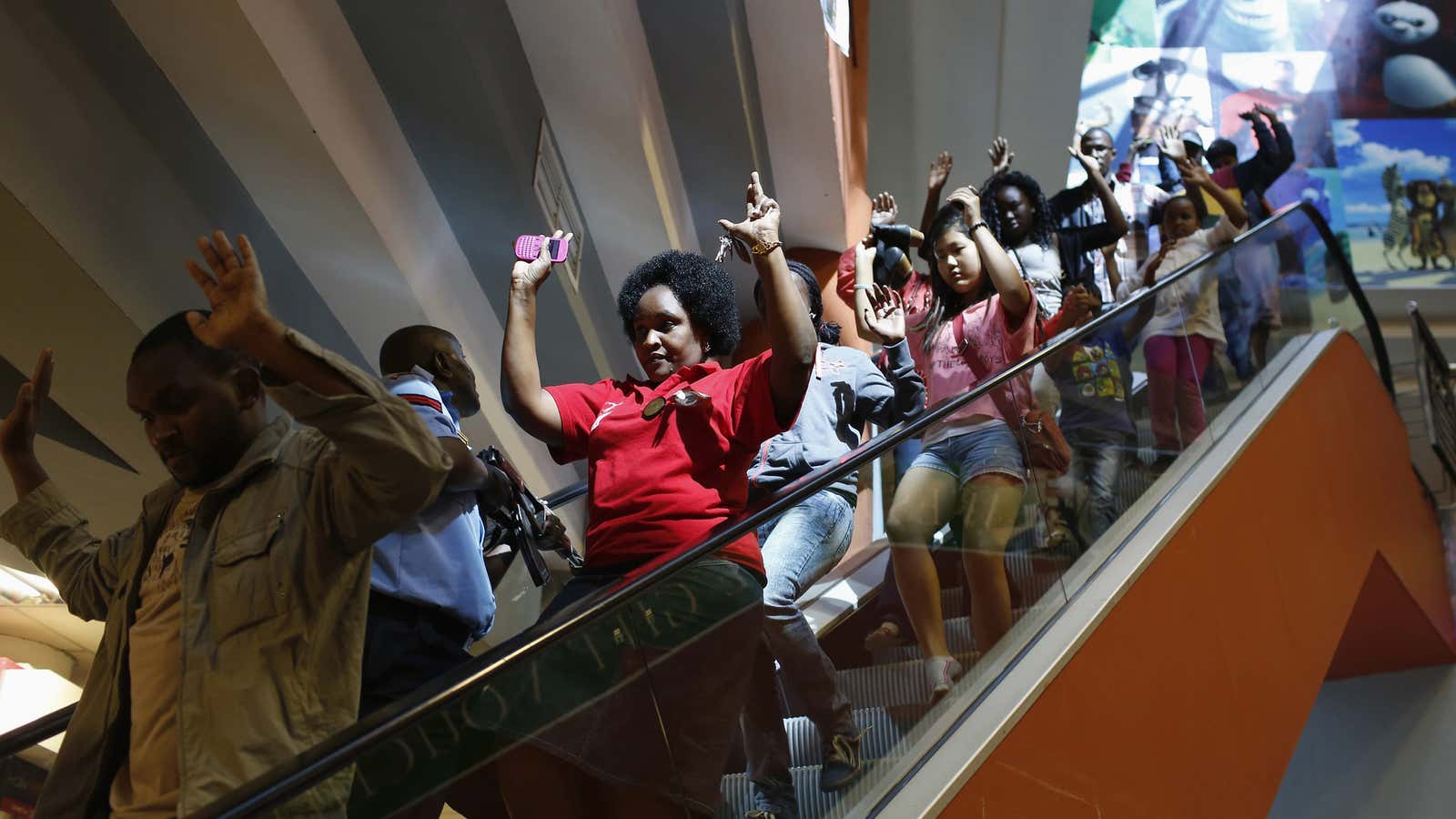American conservatives and alt-right media outlets are not happy with a US program that aims to address the links between masculinity and violent extremism in Kenya.
The grant, proposed by the State Department’s bureau of counterterrorism on Jan. 12, aims to fund a project that looks at the “ideals of masculinity” in Kenya and how they make men vulnerable to recruitment by fundamentalist groups.
The two-year, $600,000 program says expectations of Kenyan men “to be tough, heterosexual, aggressive, unemotional, and achieving” are exploited by groups “who appeal to these characteristics and offer the opportunity to fulfill these roles.” To counter this, the department said it will commission a study around this perceived link, and will through activities promote “male-to-male dialogue” on issues of gender and “encourage stronger social and familial support structures.”
On social media, the story drew criticism from both conservative media figures and Trump supporters who asked why their tax money was “being wasted again.” Right-leaning websites, who provide a daily drumbeat to president Trump’s administration also carried the story, including the Washington Free Beacon, Fox News, and Infowars. Trump has in the past stated that “Islam hates us,” has introduced the ‘Muslim travel ban’ on refugees, and restricted visa applications from a list of Muslim majority countries.
Elizabeth Harrington, a writer with the Free Beacon wrote on Twitter that the program suggested the “problem with Islamic extremism is “ideals of masculinity,” [but] does not mention radical ideology.” Fox News and Breitbart contributor David Webb also stated that the government was funding this project in Kenya while there was “no pay for US service members” ending his comment with #shutdown about the now-ended US government closure. When Infowars, the site run by radio show host and conspiracy theorist Alex Jones, ran the story, readers on the comment section called it “pure idiocy,” labeled it a plan aimed at “feminizing boys,” and linked the project to former president Obama whose father was born in Kenya.
For years now, Kenya and East Africa have grappled with the devastating impact of terrorism, with the al-Qaeda-linked group al-Shabaab carrying out deadly attacks in malls, restaurants, and university campuses. These attacks have also come as retribution against Kenya for contributing to the African Union mission fighting the Islamist group in Somalia. To bolster its numbers, the militants have also recruited heavily in Kenya, especially in the Muslim-dominated coastal and northeastern provinces.
To dissuade young Muslims in Kenya from joining terrorist groups, the US has spent millions of dollars on anti-terrorism projects in Kenya since 2011. Yet the program has drawn denunciation from community groups, who say it has had little impact, impinges on civil liberties, and endangers the lives of the very people it was meant to help.
Researchers have also shown that it isn’t “masculinity” but a complex variety of issues that was pulling young people in Kenya to extremist groups. These include socio-economic circumstances, religious identity, ethnic profiling, and discrimination, besides the lack of a sense of belonging. And for now, Kenya’s top counter-terrorism official Martin Kimani seems to agree, tweeting that the nation’s terrorism problem had nothing to do with gender roles.
